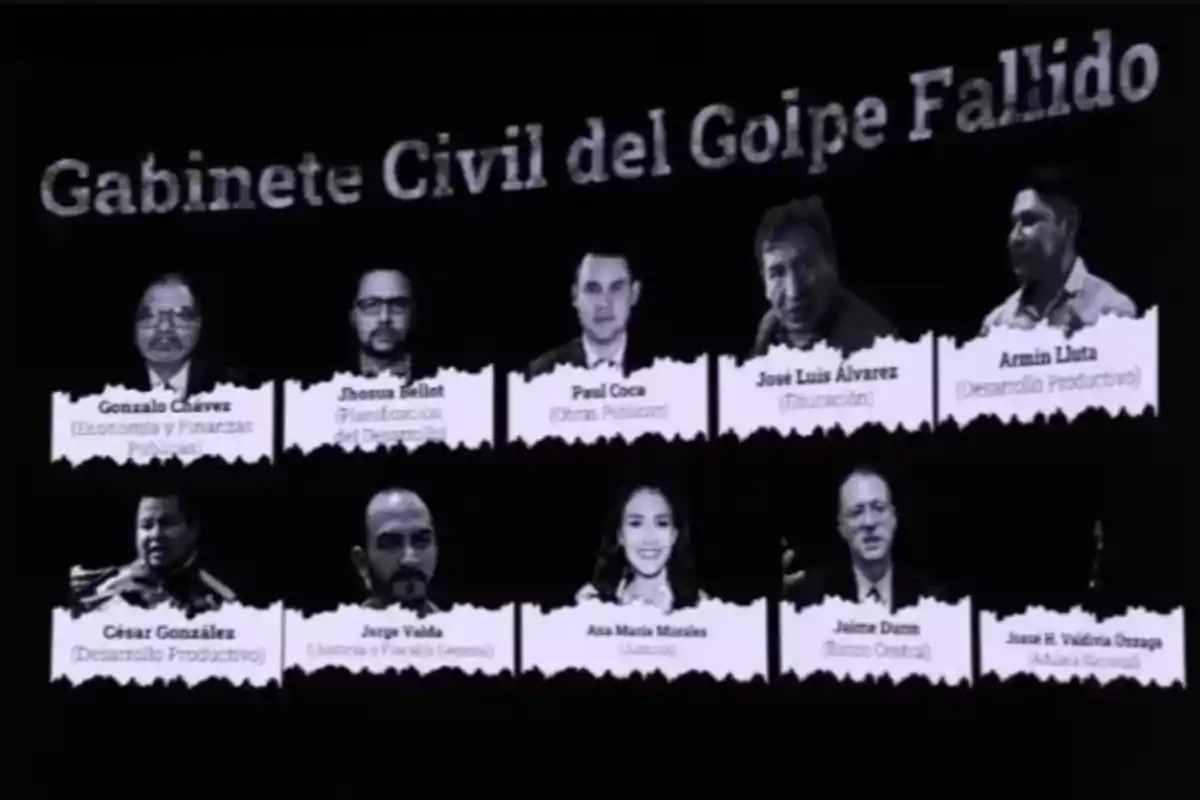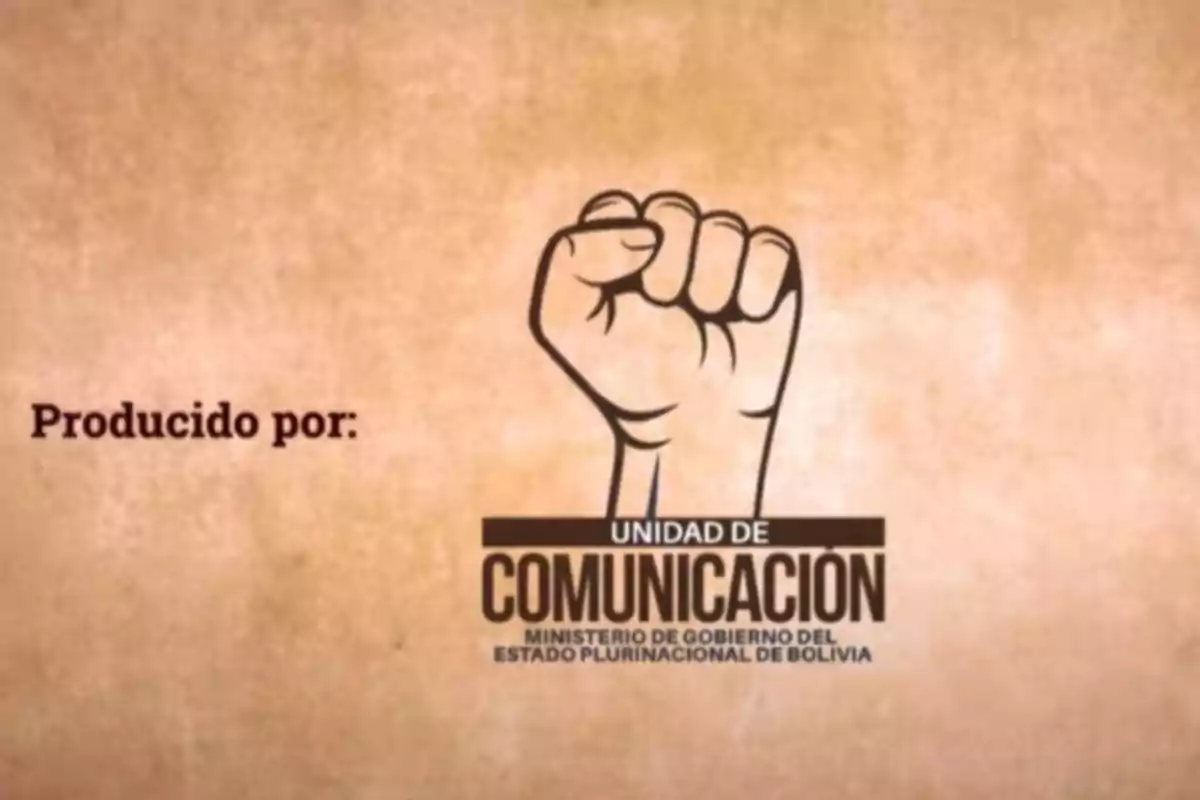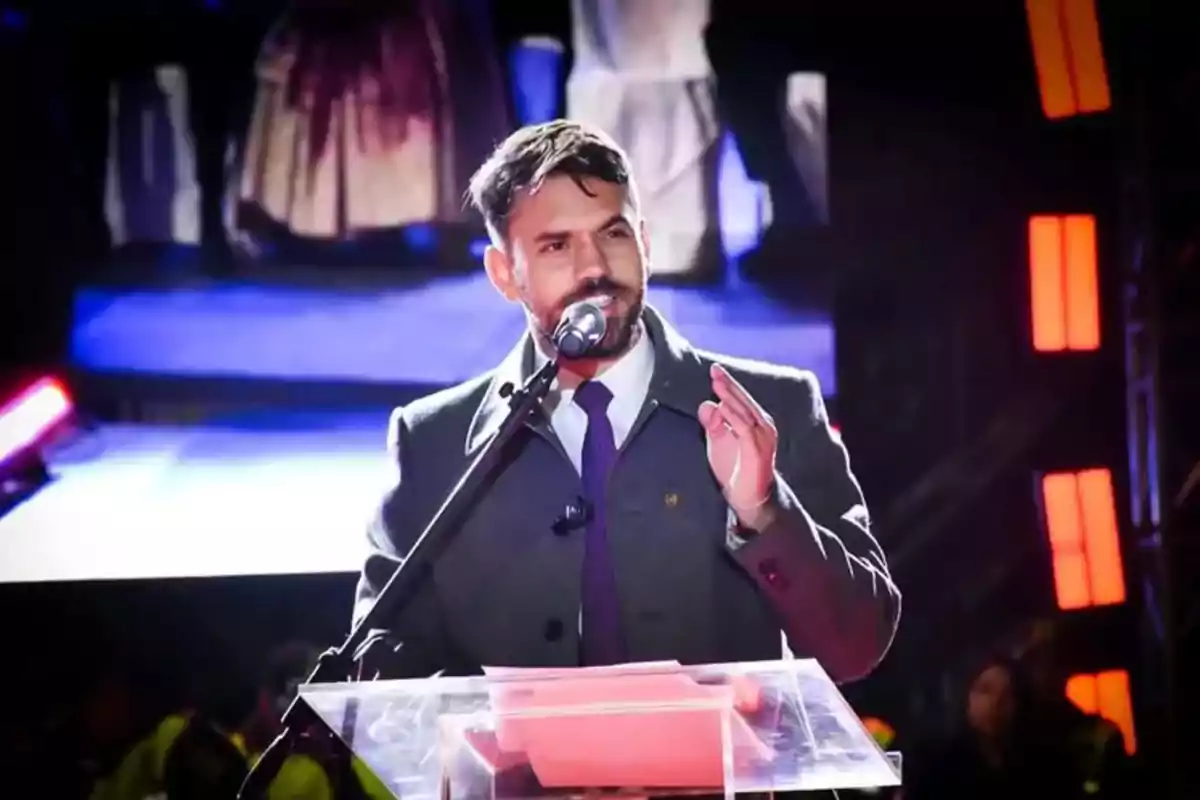
Masista documentary implicated opponents in the failed 2024 coup d'état
The audiovisual material served the regime to intimidate and justify the radicalization of its totalitarian model
The documentary "What Happened on 26J?", presented by the Ministry of Government, criminalizes opponents for the failed coup in June 2024. The audiovisual shows a list of people proposed as ministers in a potential emergency government, among the names are economists, analysts, and union leaders critical of the government. The reaction of those mentioned was swift and ignited political tension.
Gonzalo Chávez, one of those mentioned, described the documentary as a crude attempt at political manipulation without evidential basis. He denounced it as a maneuver to discredit opponents and stated that he will not allow his career to be tarnished. His publication on social media caused a strong echo among users who expressed support and alarm.
Paul Coca strongly criticized his inclusion in the official material, declaring that he has no connection with General Zúñiga or alleged conspiracies. He denounced that the government harasses him for his critical stance and for not aligning with the official discourse, asserting that he will not be silenced. He invited citizens to remain firm in defense of freedoms.

Jaime Dunn, was another named in the governmental production and considered that his mention is part of a systematic persecution campaign. He accused the Ministry of Government of acting as a "political police" that fabricates evidence. He denied even knowing General Zúñiga, pointed out as the leader of the uprising, and added that this maneuver seeks to eliminate opponents from the electoral debate.
José Luis Álvarez, leader of the La Paz teachers' union, was also mentioned as a possible minister. He discredited the documentary and attributed it to the Government's desperation, stating that his trajectory within Trotskyism is incompatible with any coup attempt. He announced that he will initiate legal proceedings against those responsible for the audiovisual, indicating that the government seeks to confuse the population and generate fear.
The coca grower Armin Lluta was included as a possible Minister of Productive Development, but he denied any connection with the events and denounced slander. He indicated that the documentary doesn't present serious evidence to support the accusations and confirmed that he will also file a criminal complaint for defamation. He pointed to Minister Eduardo del Castillo as the main person responsible for the content.
Has Masismo ended the rule of law?

The lawyer Jorge Valda was arrested in Santa Cruz after appearing on the list of the supposed civil cabinet, his capture caused concern among other analysts who fear suffering the same fate. The Police transferred Valda to La Paz, where he remains in the facilities of the FELCC. Civil organizations and activists denounced that it is a political detention, claiming that dissent is being criminalized.
In Cochabamba, retired General Marco Bracamonte was apprehended, his name also appears in the documentary as part of the coup plan. Witnesses saw him boarding a commercial flight to La Paz escorted by police officers, his detention further fueled the allegations of a repressive escalation. Citizens on social media spread messages of support and questioned the procedure.
The Government claims that the documentary is based on more than 300 statements, also indicating that documents and evidence were used to demonstrate a plot. They stated that the goal of the supposed coup was to detain or assassinate President Arce, the material shows images of weapons, troops, and tactical movements. It was presented at a public event at the Central Bank of Bolivia.
The Embassy of the United States issued a strong statement denying any involvement in the events of June 26 and rejected the documentary's accusations. It described the Bolivian Government's versions as false and offensive and urged the authorities not to involve their country in internal conflicts. It emphasized its support for the rule of law and democracy.
Deputy Alberto Astorga denounced a new wave of political persecution, compared the documentary to past setups like the Hotel Las Américas case. He indicated that the government seeks to silence social leaders, analysts, and opponents. He warned about arbitrary detentions and the weakening of the democratic system, emphasizing building an authoritarian model disguised as legality.
Various voices agreed that the Government is using the documentary as a control tool. They point out that it seeks to establish a conspiracy narrative to justify reprisals, the use of state media to disseminate the material raises ethical questions. Some sectors consider that it aims to distract attention from the economic crisis, others believe that it is paving the way for an electoral process without strong opposition.
These actions by the Government, based on questionable audiovisual documents and selective detentions, reflect a worrying drift toward authoritarianism. Instead of strengthening the rule of law, intimidation tactics are used that undermine essential freedoms and criminalize dissent. The use of state apparatuses to persecute critical voices creates a scenario incompatible with genuine democracy.
More posts: